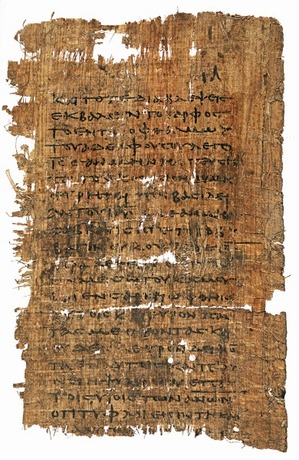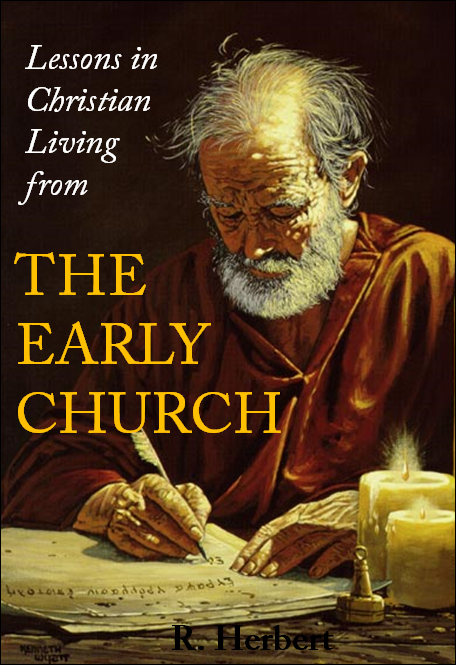 A Second Century Greek papyrus.
A Second Century Greek papyrus. “Christians are not distinguished from the rest of mankind either in locality or in speech or in customs. For they dwell not somewhere in cities of their own, neither do they use some different language…. But while they dwell in cities of Greeks and barbarians as the lot of each is cast, and follow the native customs in dress and food and the other arrangements of life, yet the constitution of their own citizenship, which they set forth, is marvelous, and confessedly contradicts expectation.
“They dwell in their own countries, but only as sojourners; they bear their share in all things as citizens, and they endure all hardships as strangers. Every foreign country is a fatherland to them, and every fatherland is a foreign country. They marry like all other men and they beget children; but they do not cast away their offspring…. They find themselves in the flesh, and yet they live not after the flesh. Their existence is on earth, but their citizenship is in heaven. They obey the established laws, and they surpass the laws in their own lives.
“They love all men, and they are persecuted by all. …They are in want of all things, and yet they abound in all things. They are dishonored, and yet they are glorified in their dishonor. They are slandered, yet they are vindicated. They are reviled, and they bless; they are insulted, and they respect. Doing good they are punished as evil-doers; being punished they rejoice, as if they were thereby given new life. The Jews war against them as heretics and the Greeks persecute them, although none of those that hate them can tell the reason of their hostility.”
Commonly dated between AD 130–180, it is possible that this is one of the first known works of Christian apologetics, but regardless of its exact date of origin and our lack of knowledge of who originally wrote the letter, and to whom, the letter to Diognetus fits, at every point, the biblical description of how Christians should be different from others. We can only read this description of early Christianity and ask ourselves how well it describes Christianity in the world in which we live, and if it describes each of us in particular.





 RSS Feed
RSS Feed
